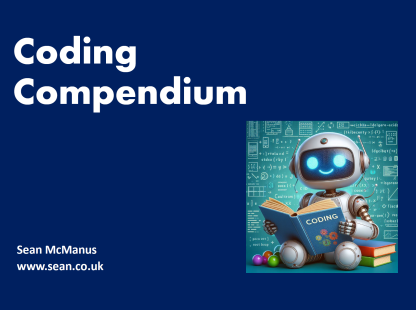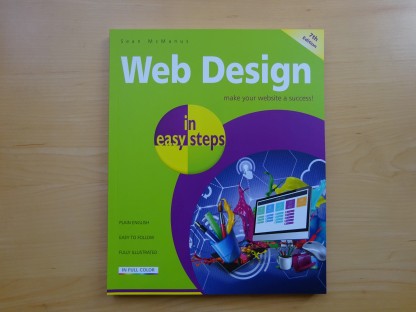
Coding Compendium
A free 100-page ebook collecting my projects and tutorials for Raspberry Pi, micro:bit, Scratch and Python. Simply join my newsletter to download it.
Making Music: July 1999
The internet offers a hidden opportunity to musicians who seize the initiative now, as Sean McManus reports.
Music on the internet is clumsy and slow. The most popular music format, MP3, can take 16.5 minutes to download a 3.5 minute song. Real time audio streams break up and offer poor quality on most domestic connections. The weak link is the connection to the internet.
While they bemoan bandwidth restrictions and hope for an improvement in future, musicians are missing a lucrative potential market. Instead of just recording a CD and throwing together an audio file for the internet, musicians should consider creating music designed for the internet and licensing it to other websites.
The reason that text is so fast on the internet is that the computer already knows what the alphabet looks like in a range of styles. There is no need to clog up bandwidth with descriptions of what letters look like. Websites need only send the codes that represent the letters themselves. The end-user's computer draws on its fonts to work out how to display the text.
Midi files are closest to text files, sending just a melody and voice description. They are small and can be easily incorporated into websites, but they sound like mid-80s computer game music when played on a standard sound card. By contrast, MP3 offers a faithful reproduction but includes a bit-by-bit description of every sound at every point. Whether it's a pop song or a classical work, there will be a lot of repetition in the data. It is this that makes the file unnecessarily bulky and slow online.
One solution is the rich music format (RMF), proposed by Thomas Dolby's Beatnik company (formerly Headspace) at www.beatnik.com (site no longer available as at June 2011). This format combines MIDI files with samples so that the melody and the instrument sounds can be sent independently and reused more flexibly. Musicians can be sure that their music will sound as intended while minimising the amount of data sent. The Beatnik player is available for free on the internet and comes as standard in Netscape 4.5, but many users will continue to use an older browser or don't use Netscape at all.
Although designed to convey any music, long Beatnik compositions can be optimised by composing music that minimises the samples needed. This skill could become a valuable commodity. Musicians could license their work for use on websites or could offer to write theme music to complement websites. Limiting factors restricting music on the internet so far have been its vast bandwidth requirement and poor quality, both overcome by Beatnik.
Sseyo has followed Beatnik's lead and introduced its own Koan Mix file format (SKM). This enables samples in a range of formats (including MP3) to be incorporated with the Koan format, so that files can be as small as 10K while preserving sound quality. The beauty of Koan is that it enables musicians to create dynamic music. Different sounds and music sequences can be assigned probabilities so that the music is re-generated each time it is played back. Each listener enjoys a unique audio experience, but within the constraints of the musical rules set by the musician. Whereas other file formats use the computer as a music delivery and playback tool, Koan uses the computer creatively and enables musicians to invent music that was impossible with standard hi-fi equipment. This music can also be used to drive Flash animations.
There is a drawback. Before the Koan or Beatnik compositions can be played, a browser plug-in needs to be downloaded. Although it only needs to be done once, it can take twenty minutes to download the program and install it successfully. Most people won't bother. Websites might be reluctant to commission music for a small subset of their audience, but the plug-ins will become more widespread as users see compatible music denied to them across the internet.
To make the most of the internet, musicians should look at writing pieces that are compact in transition and pieces that exploit the potential of the technology. At the moment, this is a niche market, but as soon as the formats become widely adopted, there will be a significant market for suitably experienced musicians.
© Sean McManus. All rights reserved.
Visit www.sean.co.uk for free chapters from Sean's coding books (including Mission Python, Scratch Programming in Easy Steps and Coder Academy) and more!

A free 100-page ebook collecting my projects and tutorials for Raspberry Pi, micro:bit, Scratch and Python. Simply join my newsletter to download it.

Web Design in Easy Steps, now in its 7th Edition, shows you how to make effective websites that work on any device.

Power up your Microsoft Excel skills with this powerful pocket-sized book of tips that will save you time and help you learn more from your spreadsheets.

This book, now fully updated for Scratch 3, will take you from the basics of the Scratch language into the depths of its more advanced features. A great way to start programming.

Code a space adventure game in this Python programming book published by No Starch Press.

Discover how to make 3D games, create mazes, build a drum machine, make a game with cartoon animals and more!